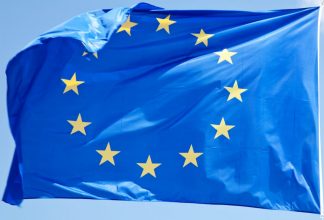Civil Society is the Key to the EU-Cuba Agreement
Letter #16 by Eduardo Clavel Rizo.
In July 2019, Civil Rights Defenders invited Cuban human rights defenders and civil society organisations to contribute with texts on how the European Union should work towards Cuba. This text is written by Eduardo Clavel Rizo.
Civil Society is the Key to the EU-Cuba Agreement
The impossibility of access to information and the limited transparency of government journalism constitute the primary causes that have kept the objectives of the political dialogue between the European Union and Cuba in the shadow of public opinion on the island.
In Cuba, only the alternative media and the internet have managed to spare from anonymity an event that could be transcendental for the country’s gradual democratisation and the insertion of sectors that have historically been stifled during the course of any development projects; without falling into the ideological submission required by any totalitarian government system, where individual rights are sacrificed –apparently– to the detriment of the common welfare by obliterating the values and rights that belong to every human being.
Based on that premise, and in view of the fact that Cuba continues to be a country where ideological segregation acts as an instrument of subjugation that deters citizen empowerment and the development of humankind as rational beings capable of thinking and acting on their own; I consider that the European Union is under the obligation to exert greater diplomatic pressure to oblige the Cuban government to comply in full with the Agreement –something that to date it does not do– and to ensure that the agreed-upon statutes are within the citizenry’s control. This will allow greater access to knowledge and more autonomy in the defence of guarantees and rights.
It is no secret that with regard to matters of this nature, there are patterns of forced criteria in Cuba because its citizens are unable to exercise the right to freedom of expression. They do not enjoy the free will guaranteed by democracy because their society is subject to a rigorous system of control and political extortion, which conditions their language and ideas through the use of economic muzzles and educational indoctrination. Moreover, because they live in a chaotic world plagued by illegality, where corruption is the supreme law, all citizens are propelled towards a life on the margins of lawfulness and legal order, no matter how honourable they may be. This way, their rights can be violated without the least possibility that they could assert a claim before any court, in a country where the mere fact of breathing is in and of itself a crime.
If the European Union’s purpose is to create a climate of tolerance that allows for the reconstruction of the democratic fabric, without putting economic interests above the principles of the agreement, then it is necessary, above all, to carry out assiduous inquiries that guarantee compliance and, if irregularities are brought to light, not to hesitate to revoke the agreement and return to the common position.
What should the European Union do in order to achieve civil society’s greater inclusion and independence with regard to the institutions controlled by the Cuban Communist Party? It should unambiguously require compliance with the agreements, something that has not occurred to date, at least in an efficient manner.
The European Union must create university programs and scholarships, as well as scholarships for institutions, to which access must be gained through competition, without leaving the decision in the hands of these centres’ administrative bureaucracies. Otherwise, the only students chosen to be sent will be those who are committed to the Marxist doctrine, ignoring any qualitative aspects and meritocracy.
On the other hand, those organisations that are tied to the government have their own codes of allegiance, and their very design makes them unable to make autonomous decisions because they are the fruits of the mediocrity, subordination, and incompetence of a group of officials who know that the only way that they can occupy such positions and enjoy the income that these provide is by maintaining their loyalty to the system, so therefore any linkage with them would be futile.
A greater rapprochement by the diplomats and European society with Cuban civil population would be an immense benefit. This would provide greater assurances and legitimacy for popular initiatives or for initiatives from minority sectors that are disconnected from the state and which seek independent alternatives to allow them to obtain the resources and means to promote cultural, educational, and education projects, such as leadership courses and citizen empowerment and self-help workshops, to foster the creation of a civic culture and assist with the onerous labour of restoring the values that have been lost in our society.
The European Union should take a chance on financing NGO initiatives that can deliver humanitarian aid and donations to the most vulnerable in a much more honourable and transparent way. These NGOs must work to create economic opportunities through community projects in those sectors that currently suffer from marginalisation and alienation, whether through the system’s own policies or in the embers of racism and class differences that intensify every day. A product of that marginalisation is an inequality that pushes the most disadvantaged sectors to prostitution, crime, and drugs as their only means of subsistence, excluding thousands of youth and denying them the opportunity for inclusion in society.
The European Union should force the government to foster much greater plethoric receptiveness in connection with economic and social matters. On the one hand, this receptiveness should ensure progressive development within the private sector, granting greater autonomy to transact business without the intervention of any administrative and bureaucratic state apparatus, which deter entrepreneurship and impose legal barriers that hinder this sector’s economic independence and progress. On the other hand, it should ensure greater respect and tolerance regarding organisations of an independent nature that are dedicated to monitoring and denouncing cases of human right violations, and which suffer daily from disrepute, stigmatisation, coercive measures, and military sector violence, facts that can be classified as state terrorism.
It would be ideal to force the Cuban government to create one or more free trade zones which would function as wholesalers and serve as an excellent strategy to fight the black market which feeds almost all private businesses. This measure would help eliminate the sword of Damocles that prevents the private sector from creating independent unions and being able to demonstrate, through a strike or shutdown, their discontent with a tax increase or for reasons of any other nature that are damaging to their businesses or livelihoods.
I do not believe that alienation is the best solution. Social isolation is a strategy that has worked for the Marxist regimes and is, in fact, one of the most efficient ones, particularly if the goal is to keep people disconnected from reality, as well-exemplified by Plato in the myth of the cave. But, undoubtedly, it is not favourable for an agreement to lack the necessary validity and have as its sole goal –which is the case today– the oxygenation of an archaic and decadent regime that keeps society at the margins of everything that goes on.
If the Cuban government is not willing to comply with what has been agreed upon, the European Union has not only the duty but also the obligation to not ratify the agreement. This remains at the discretion of the commissioner in charge of monitoring compliance with the agreement.
Cuban society, particularly its youth, is eager for hope, and in need of both the faith that a rapprochement process can provide as well as support from the nations that have achieved the most elemental rights for their people on the basis of respect for international law, thereby constituting paradigms to be followed by those nations that are still suffering from having to live under authoritarian and despotic regimes, where corruption or tyranny have created thick layers between the powers, rendering them indivisible.
The communist doctrine’s ideological fundamentalism is profoundly known to many of the countries that today belong to the European Union and that, in a not so distant past, were victims of this monolithic system. It would be sufficient to mention the genocides, such as Katyn’s murder, or the famines that cost millions of people their lives; the concentration camps (gulags) where dissidents or innocents were confined; the Stalinist purges; the Berlin wall, where any human being trying to escape the spiritual and human holocaust was assassinated like an animal. This is the scaffolding upon which all totalitarian systems are built for the purpose of dehumanising individuals in the name of humanity, imbuing them with a culture of hate and an irrational ideal.
It appears that humanity has decided to close this chapter and has left Cuba to be an historic benchmark, to remind the world of the consequences of communism. That is what we have been confined to, to be a living museum of totalitarianism. The only other thing we need is to be declared the intangible heritage of humanity. Sixty years of suffering is too long. I think it is time that all countries, not just Europe but the whole world, take a firm position and help the Cuban people recover their dignity.
Eduardo Clavel Rizo
About Eduardo Clavel Rizo
Eduardo Clavel Rizo is 27 years old and a student of sociology at the Universidad de Oriente. He resides in Santiago de Cuba. He has no affiliation with any ruling government or independent political organisation.

